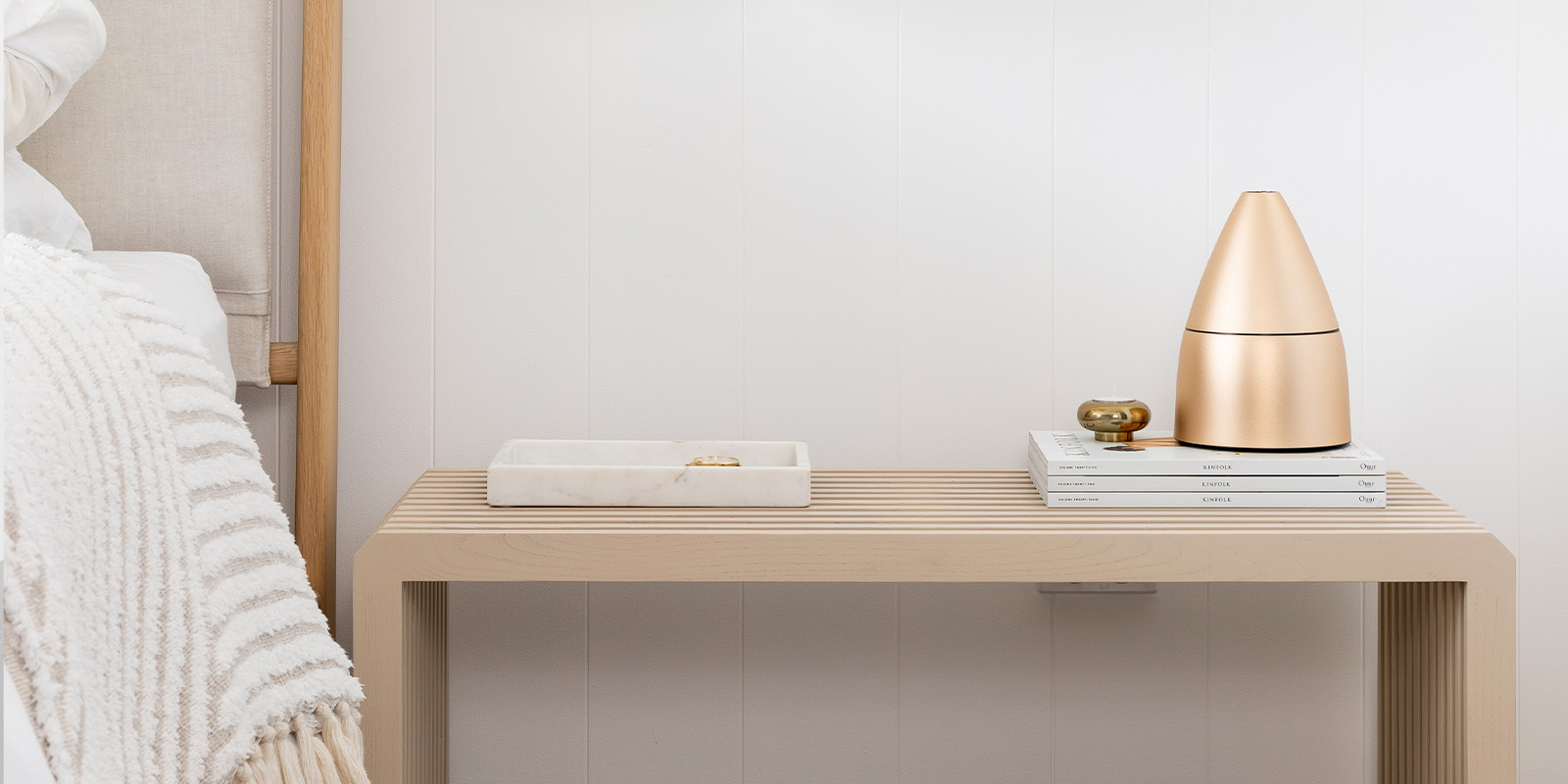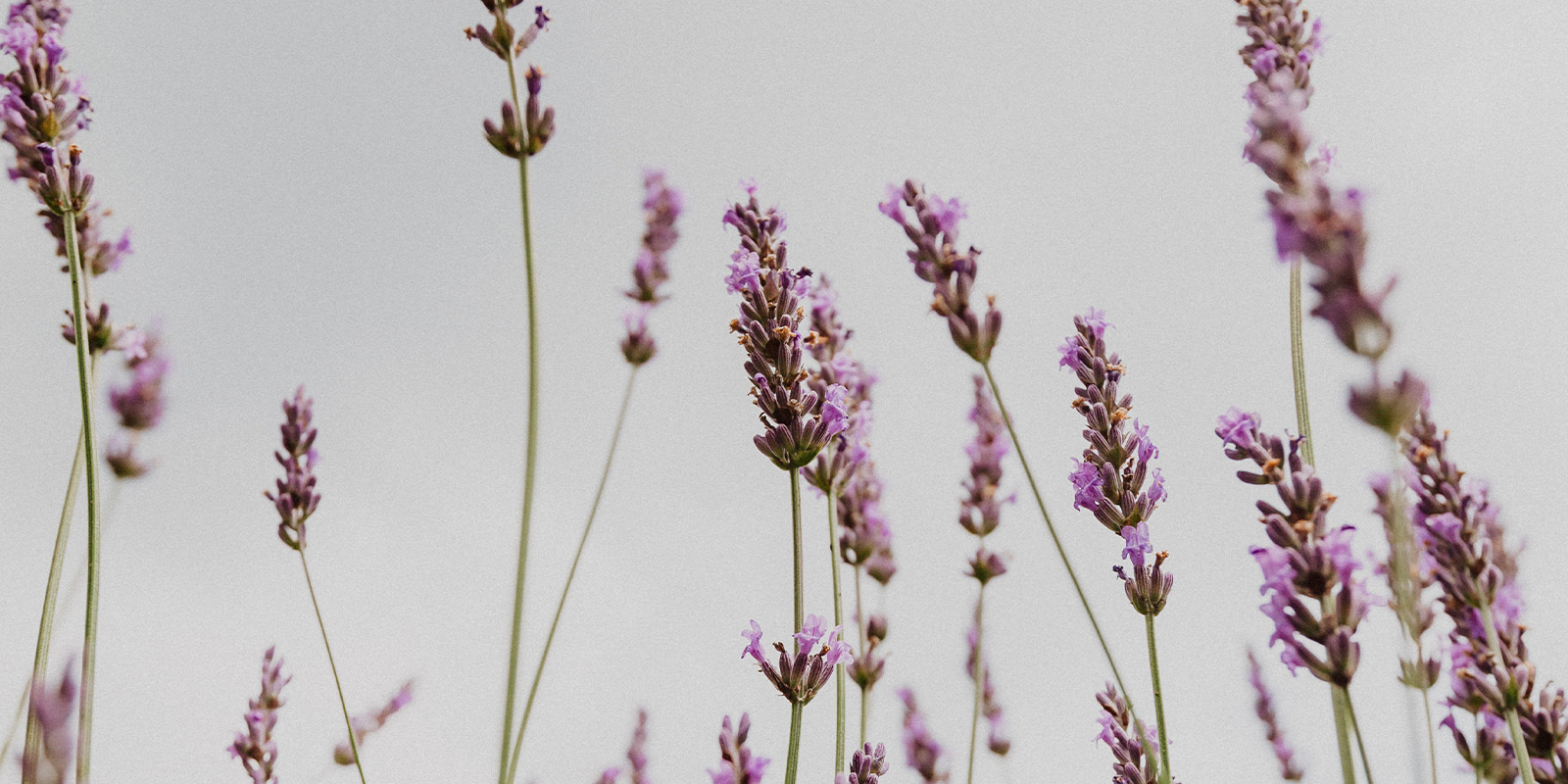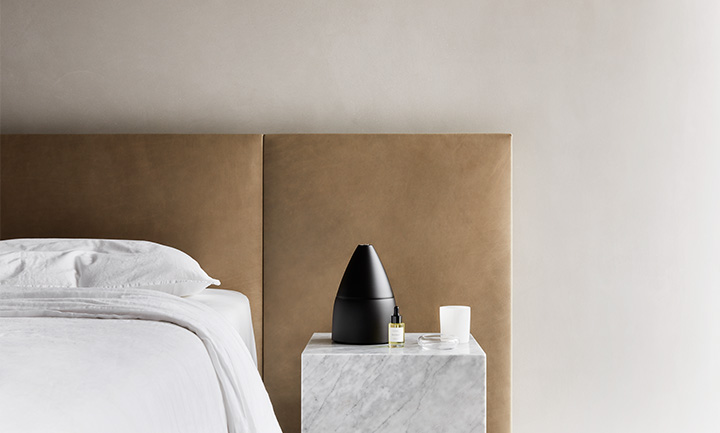The Importance of Sleep
In recent years, people are sleeping worse than ever before. Although sleep is one of the three pillars of health, along with nutrition and movement, many people are not getting enough for their wellbeing. With higher caffeine intake, increased screen time, and external stressors, it’s no surprise that adults are having a harder time sleeping in 2023. Today, people will do almost anything to get a good night sleep. From taking melatonin or CBD, installing blackout curtains, listening to ambient sounds, or even using sleep specific apps to aid in lulling themselves to bed. Intro: aromatherapy, a natural alternative consisting of inhaling essential oil scents, that has been used for sleep aid for thousands of years. Using scents for better sleep is a tried and true method to receive an array of benefits and sleep improvement.
One third of adults do not regularly get the recommended amount of uninterrupted sleep they need, defined as 7 or more hours by the CDC, and up to 70 million Americans experience chronic sleep disorders such as insomnia. Research has found that the average American adult sleeps just 6.8 hours a night, dropping from the 7.9 hour nightly average of the 1940s. Overtime, this sleep disparity can lead to health risks as well as bleed into one’s work and personal life, potentially causing changes in productivity, mood, and memory.
Inhale Exhale: Aromatherapy for Sleep
Aromatherapy has been used for its healing properties since ancient times. Scents can be applied, inhaled, or diffused to aid with a variety of health benefits such as pain relief, stress and anxiety easement,and decreasing sleeplessness. Although not typically a sense associated with sleep, studies have shown that smell directly affects sleep. Distinct smells can promote better sleep quality, help people wake up in the morning, and even influence dreams and memory formation during rest.
People can utilize this knowledge and set themselves up for a successful night sleep by incorporating specific scents into their bedtime routine. Exposure to scents associated with calming, clarifying, or mood boosting properties can help one ease into a restful state and create a bedroom environment more conductive to falling, and staying, asleep.

Calm your Nerves: Lavender & Bergamot
The body responds in step with external pressures – when one experiences stress or strain in their life, their body reacts. For example, through increased heart rate, increased blood pressure, and increased cortisol production. These changes are the exact opposite of what the body should be experiencing when winding down for sleep and can majorly contribute to sleeping problems like insomnia.
Lavender, the most studied scent in relation to sleep studies, is a natural scent that contains chemical compounds that calm the nervous system, thus counteracting stress and anxiety. Studies have found that inhaling lavender essential oils can lower heart rate, body temperature, and blood pressure – all processes that increase with stress and decrease as the body naturally prepares itself for sleep. The citrus ingredient bergamot contains similar properties, helping to reduce blood pressure and heart rate when used for aromatherapy.

Clear your Head: Peppermint & Eucalyptus
Also found to positively impact sleep are the scents of Peppermint and Eucalyptus. When inhaled, these bright, herbal scents can clear one’s head of racing thoughts after a long day, a common barricade to falling asleep, and leave you in a more relaxed state. Clearing the head in a more physical way, these scents can also help to clear out congestion, which in turn can help to relieve breathing and aid in dropping off to sleep.
Balance your Mood
After a day of heightened emotions, one can find themselves struggling to level out before bed. To counteract this sensation, try using aromatherapy with Sandalwood and Cedarwood oils. These scents are known for their mood-balancing properties, calming emotions so you can unwind before bed. Specifically, these oils contain a chemical compound, cedrol, that causes a sedative effect. Cedrol also activates the body’s parasympathetic nervous system, better known as your “rest and digest” system.
While less studied, findings point to vetiver scents positively impacting sleep. The deep, earthly smell works similarly to its woody counterparts, slowing the mind down to a more relaxed, grounded state.
Air Aroma Scents for Successful Sleep
Air Aroma provides multiple products conducive to sleep focused aromatherapy. Spritz a few sprays of our room sprays on your pillow before bed or throughout your bedroom to create a calming sleep environment. Air Aroma offers sprays featuring:
If you prefer to utilize your personal diffuser for aromatherapy, Air Aroma provides a range of our carefully curated fragrances in 30ml diffusion oils.
